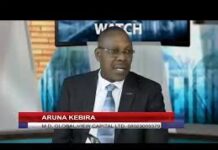•Says bands enjoying below 20 hours daily unaffected, only 15% of power consumers impacted
•NERC vows to enforce sanctions on Discos attempting to cut corners
•CPPE, Shehu Sani insist 300% tariff increase in one fell swoop unjustifiable
•Declare policy will hurt households, businesses
•NUEE tells Tinubu to declare state of emergency in power sector
Chigozie Amadi
After about two years of tariff freeze in the power sector, the federal government yesterday increased the rate paid per kilowatt hour (kwh) of electricity from about N68 to N225 for Band ‘A’ customers, who consistently enjoyed 20 hours of supply daily.
Announcing the increment in Abuja, the power sector regulator, Nigerian Electricity Regulatory Commission (NERC), stated that only about 15 per cent of the over 12 million registered power customers would be affected by the new decision.
But Centre for the Promotion of Private Enterprises (CPPE) and Senator Shehu Sani said the 300 per cent tariff increase all in one go was indefensible.
On his part, National President, National Union of Electricity Employees (NUEE), Engr. Adebiyi Adeyeye, urged President Bola Tinubu to declare a state of emergency in the power sector.
According to NERC, the decision to raise tariff would also relieve the federal government of the burden of paying N240 billion per month and N2.9 trillion per year as electricity subsidy.
The federal government recently reintroduced subsidy payment in the power sector, citing the need to protect vulnerable Nigerians who were already suffering the effect of soaring inflation occasioned by fuel subsidy removal as well as the collapse of the foreign exchange (FX) market.
Vice Chairman of the commission, Musiliu Oseni, who stood in for the chairman, Sanusi Garba, during the press briefing, stated that only a fraction of the over 3,000 Distribution Companies (Discos) feeders, that is less than 500 feeders, would be impacted.
Present at the meeting also were NERC commissioner in charge of legal, licensing and compliance, Dafe Akpeneye, as well as Commissioner, Planning, Research and Strategy, Dr. Yusuf Ali.
Oseni revealed that NERC had also ordered that majority of the feeders, which did not meet the 20 hours supply threshold before now, would be downgraded to lower bands in a bid to protect consumers from exploitation.
The vice chairman explained that for now, tariffs for every other bands remained unaffected.
A THISDAY calculation of the new rate showed that it was hiked by as much as 230.8 per cent per kwh.
Oseni recalled that last year, the commission received an application from the Discos for a review of their rates, explaining that as part of the rules, it conducted hearings where all stakeholders were present.
He said, “Tariffs were frozen as of December 2022, and the payments to the generation companies are significantly going down relative to their cost of operations. We have about 75 per cent of our generation coming from thermal generation companies.
“About 25 per cent comes from hydro, making use of God-given water. You may think that water is God-given, but the measures put in place for processing the water into electrons requires investment and has to be recovered. And even aside from that, there are water rates payable by the hydro generators.
“So on the basis of price of gas, which was as of December 2022, $2.18, but when you look at that $2.18 as at that time, based on the rate, it amounted to maybe $900 or $1000, depending on the FX rate used at the time.
“But fast track to December 2023, if you convert the same $2.18 into naira, you know how much it is, based on the FX rates, and that speaks to the change in the cost of operation.”
He said at the time the FX rate was about $400, it was being heavily subsidised by the federal government.
Oseni added that it meant that there were two different sets of subsidies on the power sector then. He argued that because of the liberalisation of FX market, there had been a unification of FX rates, with the “hidden subsidy” now fully gone.
Oseni further explained that at the moment, Generation Companies (Gencos) were unable to make payment for gas, resulting in reduction in gas supply to the power sector, since there was competitive demand for gas.
He stressed that the issue had compounded the performance of the sector and led to the dip in generation recently.
He stated, “You recall we classified customers on the basis of the hours of service, where you have band A, band B, band C, band D and band E, based on the service level. So, the commission went to review the performance of those figures, leveraging on technology to be able to monitor the performance of the feeders on near real time.
“And on that basis, the commission has decided that many of the feeders that the distributors currently brandish as band A are not meeting the band A service, and as such, the feeders have been ordered to be downgraded immediately as a way of protecting consumers.
“We have over 3,000 feeders, that is, Disco’s feeders. Initially, we had over 875 feeders as band A, based on the classification by the distribution company. But upon reviewing those feeders’ performance, the commission has reduced it to under 500 feeders now, which qualify as band A, that is, the feeders that are currently meeting the 20 hours average service.
“So, when you look at that the over 480 feeders, that is, under 500 feeders, vis-a-vis the over 3,000 feeders we have, the computation shows that you have just 17 per cent of the total feeders of the distribution companies now qualified as Band A feeders.
“And in that case, when you look at that 17 per cent, it is estimated that just under 15 per cent of customers are benefiting from those feeders, that is, are currently connected to those feeders.
“So, on the basis of that, only less than 15 per cent of customers will be affected by any rate increase that the commission will ever approve for the distribution companies.
“Further to that, the commission has issued an order, which is titled, “April 2024 Supplementary Order,” and takes effect from today, and in that order, the commission has approved a rate review of N225 per kilowatt hour for just under 15 per cent of the customer population in the sector.”
Oseni stressed. that there were certain locations where, without any additional investments, the distribution companies and also the transmission companies, based on the investment already made, could deliver a minimum of 20 hours per day.
The vice chairman explained that other customers would not be neglected, but would still continue to get service for not up to 20 hours.
According to him, apart from monitoring by NERC, Discos would henceforth be compelled to provide data on supply from their feeders.
As part of the enforcement and monitoring and evaluation mechanism, he said Discos had been mandated to set up a rapid response team in different locations where the feeders were going to be affected by the rate review.
“The other thing we put in the order is that for a failure to meet the service commitments for seven consecutive days, the feeder will be downgraded immediately to the service level that the Disco is able to provide on that feeder,” he added.
NERC said if nothing was done, subsidy could soar to N2.9 trillion by the end of the year, at N240 billion per month.
The regulator said, “As a result of that, subsidies are then going up and it reached a point where in January of this year the subsidy was N240 billion based on the government’s policy for us to freeze the tariffs and it was planned for 12 months which gets you to a subsidy of N2.9 trillion now.”
However, reacting to the latest increase in electricity tariff, CPPE stated that the 300 per cent increase in one fell swoop in the price of electricity would be difficult to justify.
CPPE urged the federal government to fix the fundamental issues in the electricity value chain, such as technical and commercial losses, exploitative practice of estimated billing and the problem of over centralisation of the power supply through the national grid model, among other issues.
In a statement, titled, “Comments on Electricity Tariff Review,” Chief Executive Officer of CPPE, Dr. Muda Yusuf, said the power sector issue had become a major conundrum in the economy.
Yusuf stated that there was a major funding and liquidity crisis, posed significant risk to investments in the electricity value chain, especially the rising costs across the chain as a result of the multiple macroeconomic headwinds, while the system was not generating the desired liquidity to match the escalating costs.
He stated, “Tariff review is, thus, inevitable. But a 300 per cent increase in one fell swoop is difficult to justify.
“But it is noteworthy that the increase is not across board, as only 15 per cent of electricity consumers are affected. And this is targeting the segment with the highest ability to pay. This reflects some attributes of equity in pricing.
“But some fundamental issues need to be addressed in the electricity value chain. There are issues of technical and commercial losses, which are yet to be addressed.
“These are inefficiencies costs that consumers are compelled or expected to pay for as part of the cost recovery argument. And these costs are in billions of naira. There is also the exploitative practice of estimated billing. Millions of electricity consumers are yet to be metered.
“There is the problem of over-centralisation of the power supply through the national grid model. There are capacity issues with some of the electricity distribution companies, contributing to the lapses in electricity delivery outcomes.
“The energy mix programme is yet to gain an impressive traction.”
He added, “It is important to fix these fundamental issues in the power sector. Fiscal policy measures should be immediately deployed to reduce costs across the entire electricity value chain.”
Senator Shehu Sani also condemned the increase in the electricity tariff by NERC, stating it would hurt many Nigerian businesses
Reacting to the electricity tariff increment, Sani, in a post on his X handle, berated the President Bola Tinubu administration for increasing electricity tariff by 300 percent for Nigerians amid rising inflation and high cost of living in the country.
Sani said, “Increasing electricity tariffs by 300 per cent will finally electrocute human lives and businesses in the country.”
Declare State of Emergency on Power Sector, NUEE Tells Tinubu
NUEE President, Adebiyi Adeyeye, urged President Bola Tinubu to declare a state of emergency in the power sector.
Adeyeye, who expressed displeasure with the epileptic power supply in Nigeria, described the situation as unpalatable and unbearable. He urged the federal government to as a matter of urgency call a roundtable for all major stakeholders in power sector.
Adeyeye appealed to the federal government to look critically into the power sector and make substantial changes where necessary. He stated that many companies were folding up due to unstable power supply, which he said was not the best for the country at this critical time.
He said what was contributing to the failing economy in the country was power supply and if the country must be rescued, the federal government must be ready to revamp the already dying power sector by convening a meeting that would comprise all major stakeholders in the sector.
According to him, “No doubt, the federal government is making frantic efforts to improve the power generation in the country but they need to show some level of seriousness in making sure that Nigerians enjoy stable power supply.
“Yes, I’m aware that last month, the federal government issued a marching order, asking the NERC to withdraw licenses of non-performing electricity distribution companies.
“Both the generating and transmission companies must also be ready to show commitment. You can only distribute what is available.”
The NUEE boss said government should encourage and harness the abundant renewable energy source as against the use of fossil fuel to improve power generation and reduce the effect of climate change in Nigeria as the world is moving towards just energy transition.
Adeyeye also said since the privatisation of the power sector in November 2013, the hope and expectation that privatisation would add value to the life of the poor and bring meaningful impact and improvement to the power sector had been dashed.
He added that the myriad problems that bedevilled the sector prior to the privatisation exercise had worsened and increased in multiple folds.
Adeyeye stated, “Take, for instance, the megawatt output of the generating companies has been dwindling. As at this morning, the total megawatt we operate on is 4,300MW with the incessant collapse of the national grids.
“This is quite unfortunate, with a population of over 200 million. How do we improve our economy under this kind of arrangement? Investors are leaving the country, moving to neighbouring countries all because we don’t have stable power supply.
“This is sad and shameful. Thousands of Nigerians are losing their jobs owing to the fact that many companies are on diesel to power their generators, which has wreaked havoc on the finances of these companies, hence, they reduce their workforce.”
























